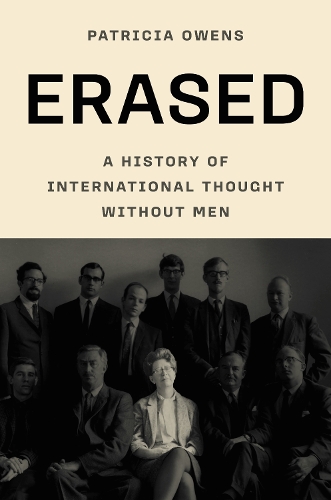
Erased: A History of International Thought Without Men
(Hardback)
Publishing Details
Erased: A History of International Thought Without Men
By (Author) Patricia Owens
Princeton University Press
Princeton University Press
1st June 2025
United States
Classifications
Tertiary Education
Non Fiction
International relations
327.082
Physical Properties
Hardback
432
Width 156mm, Height 235mm
Description
How a field built on the intellectual labor and expertise of women erased them
The academic field of international relations presents its own history as largely a project of elite white men. And yet women played a prominent role in the creation of this new cross-disciplinary field. In Erased, Patricia Owens shows that, since its beginnings in the early twentieth century, international relations relied on the intellectual labour of women and their expertise on such subjects as empire and colonial administration, anticolonial organising, non-Western powers, and international organisations. Indeed, women were among the leading international thinkers of the era, shaping the development of the field as scholars, journalists and public intellectualsand as heterosexual spouses and intimate same-sex partners.
Drawing on a wide range of archival sources, and weaving together personal, institutional and intellectual narratives, Owens documents key moments and locations in the effort to forge international relations as a separate academic discipline in Britain. She finds that womens ideas and influence were first marginalised and later devalued, ignored and erased. Examining the roles played by some of the most important women thinkers in the field, including Margery Perham, Merze Tate, Eileen Power, Margaret Cleeve, Coral Bell and Susan Strange, Owens traces the intellectual and institutional legacies of misogyny and racism. She argues that the creation of international relations was a highly gendered and racialised project that failed to understand plurality on a worldwide scale. Acknowledging this intellectual failure, and recovering the history of women in the field, points to possible sources for its renewal.
Author Bio
Patricia Owens is professor of international relations at Oxford University and a fellow of Somerville College. She is the author of Between War and Politics: International Relations and the Thought of Hannah Arendt and Economy of Force, and the coeditor of Womens International Thought: A New History and Womens International Thought: Toward a New Canon.
